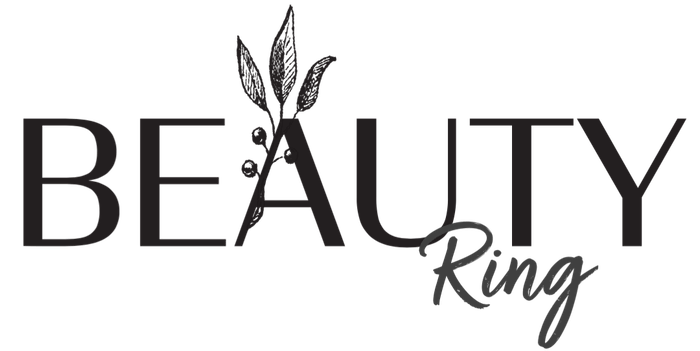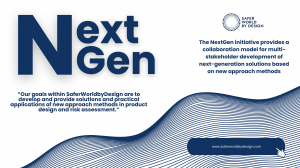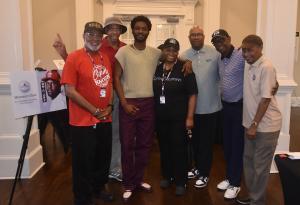The NextGen initiative provides a collaboration model for multi-stakeholder development of next-generation solutions based on new approach methods.
— Barry Hardy, CEO of Edelweiss Connect
BASEL, BASEL-STADT , SWITZERLAND, March 25, 2024 /EINPresswire.com/ — Edelweiss Connect (EwC), a Swiss-headquartered business focusing on next-generation product design and risk assessment solutions, communicates on recent progress on their SaferWorldbyDesign innovation platform. Their NextGen initiative provides a collaboration model for multi-stakeholder development of next-generation solutions based on new approach methods combining needed evidence for product design and assessment workflows. Workflows executing tiered strategies are used to support sound decision-making on products that ensure both human and environmental health, but additionally, smart product design, life cycle, and sustainability goals as envisioned by a Safe- and Sustainable- by Design framework.
The goals of the SaferWorldbyDesign NextGen initiative are to:
Share knowledge and best practices on the practical application of new approach methods to product design and risk assessment;
Bring different stakeholders together to support collaboration developing innovation and application opportunities;
Discuss existing and potential case study work promoting sufficient quality of evidence supporting decision-making;
Promote the regulatory acceptance of new forms of scientific evidence in safety assessment.
“Our goals within SaferWorldbyDesign are to develop and provide solutions and practical applications of new approach methods in product design and risk assessment. Such a vision is enabled by a multi-stakeholder approach sharing knowledge and best practices supporting solution development and case study evaluation. Within the NextGen Basel 1 symposium, held on the 1 March 2024, we aimed to bring different stakeholders together to support collaboration developing innovation and application opportunities that will drive the acceptance of new approach methods forward. Our goals include reduction and replacement of animal testing, structured evidence-based risk assessment, and safer by design applied to products, environmental protection, and sustainability. During this meeting and related interactions, we discuss existing and potential case study work promoting the use of methods and data providing sufficient quality of evidence for decision-making for well-formulated problems. We also aim to promote the industrial and regulatory acceptance of new forms of scientific evidence in product design and safety assessment.” Barry Hardy, CEO of Edelweiss Connect.
Participants in the NextGen Basel 1 symposium comprised leading expertise from SaferWorldbyDesign partners and collaborators on related research and innovation projects providing new methods for further refinement, development, and testing on industrial problem formulations and included large industrial organisations interested in NextGen solutions (Dow Chemical, Syngenta, Unilever, Novartis, Beiersdorf), SME innovators (Edelweiss Connect, DNTOX, InSphero, TissUse, Net Zero Impact), research projects (RISK-HUNT3R, PrecisionTox, ONTOX), academic institutions (FHNW, University of Konstanz) and regulatory scientists (SCAHT).
The topics covered at the symposium overlapped significantly with current and forward-looking SaferWorldbyDesign target solution areas included New Approach Methods (NAMS) for regulatory applications, the ASPA risk assessment workflow framework, modelling the blood-brain-barrier in vitro, ontologies as the basis for setting up animal-free test batteries, co-expression network analysis of toxicogenomic data, cross-species, multi-omics analyses as a new approach to chemical hazard assessment, multi-organ-on-chip in safety and efficacy testing, risk stratification exemplified by human liver microtissues, NAMS and practical industrial risk assessment, use of modern approaches in pesticide design and risk assessment, use of new approach methodologies in defined approaches for skin sensitization assessment, environmental risk assessment of cosmetic ingredients, elucidation of hormonal dependencies and associated species specificities of key neuro-developmental processes to improve risk assessment, 3D vessel on-chip system for the assessment of vascular toxicities, bridging AI/ML advancements with risk assessment needs, safer and sustainable by design approaches, and life cycle and sustainability analysis.
More information is provided at https://saferworldbydesign.com/
Connor Hardy
Edelweiss Connect
+1 503-201-4725
email us here
![]()
Originally published at https://www.einpresswire.com/article/698632750/edelweiss-connect-launches-saferworldbydesign-nextgen-initiative





